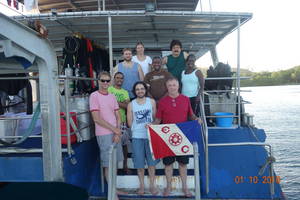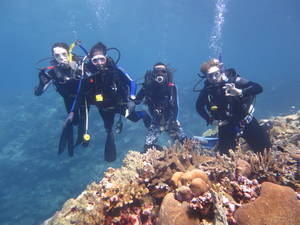Related News

In early January 2016, a team of scientists from the Institute of Applied Sciences of USP in early January 2016 participated in a 2-week expedition to remote regions of the Solomon Islands. Alongside collaborators and researchers from the Scripps Institution of Oceanography and Georgia Institute of Technology, USA, the team’s goal was to discover marine organisms which could be explored as a potential source of useful drugs.
Drug discovery efforts focus on four major disease areas of importance to the United States and developing nations: infectious diseases including tuberculosis and drug-resistant pathogens; neglected tropical diseases including hookworms, roundworms and malaria; cancer; and neurodegenerative and central nervous system disorders.

The team was led by Dr Katy Soapi. The team, comprising Assistant Project Manager, Mr Klaus Feussner, Scientific Officer Mr Joape Ginigini, Technician Mr Talemo Waqa and their overseas counterparts, collected seaweeds, sponges and marine microbes whose chemical extracts and chemical constituents are now being screened in the therapeutic areas mentioned above.
Mr Feussner while acknowledging the role of IAS’s long-term collaborators stated that IAS will continue to take the lead role in the region in the study of plants, marine organisms and bacteria to discover new drugs. Aside from drug discovery efforts, results of the research and ecological surveys will contribute to developing innovative conservation and management options that will help preserve biodiversity and the health of coral reefs in the South Pacific.